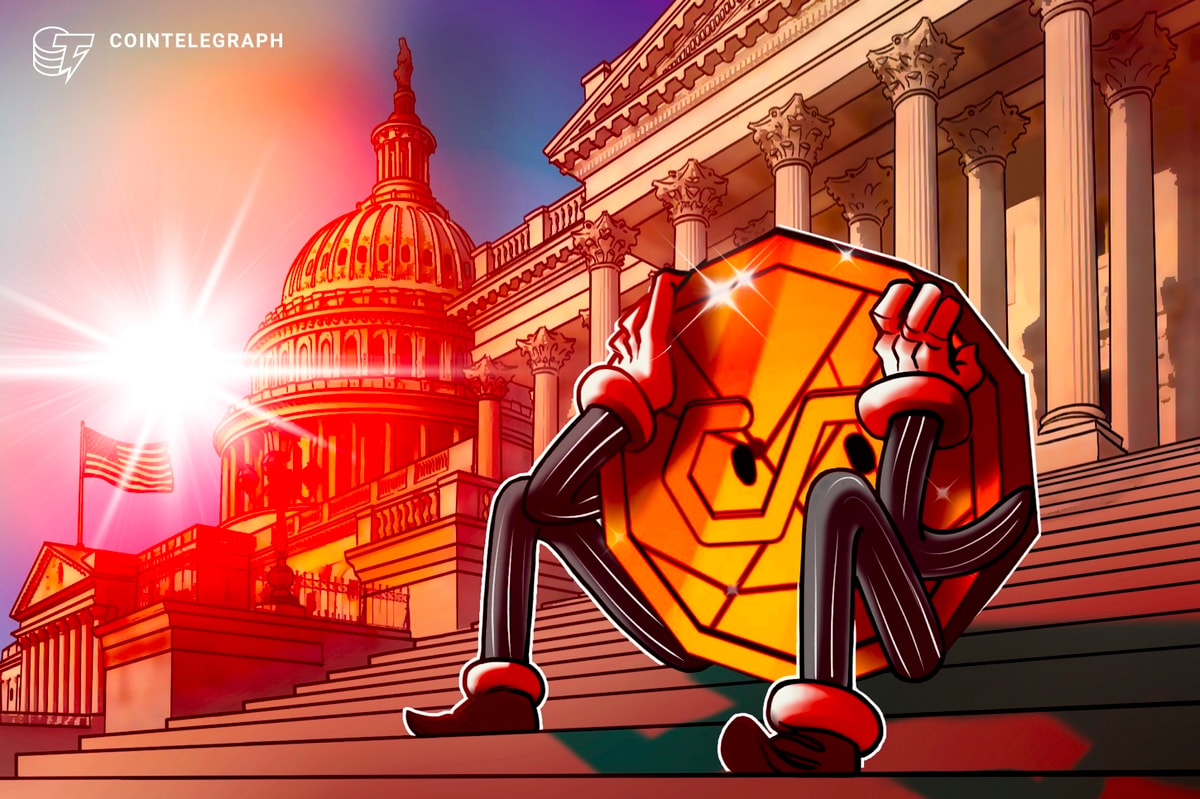US Senate Democrats are getting flak after they helped move stablecoin legislation ahead for discussion on the Senate floor.On May 19, 16 Democratic s
US Senate Democrats are getting flak after they helped move stablecoin legislation ahead for discussion on the Senate floor.
On May 19, 16 Democratic senators broke from the party line to pass a motion to invoke cloture, which will now set the bill up for debate on the Senate floor. Some of the same Democrats had held up the bill in early May when they withdrew support, citing corruption concerns over President Donald Trump’s cryptocurrency dealings.
The bill’s opponents hailed lawmakers’ refusal to support it but were soon taken aback when the senators reversed their position. The lightly amended legislation contained no provisions regarding World Liberty Financial, the Trump family’s crypto venture.
Some activists have said that the Democrats supporting the bill should be ousted in the upcoming Democratic primaries in 2026, reflecting a growing rift in the Democratic Party over cryptocurrencies.
Democratic lawmakers’ approach to crypto shows split in party
On May 19, moderate Democratic Senator Mark Warner announced he would support progressing the bill, stating that it was “not perfect, but it’s far better than the status quo.”
Warner set corruption concerns aside, stating, “Many senators, myself included, have very real concerns about the Trump family’s use of crypto technologies to evade oversight […] But we cannot allow that corruption to blind us to the broader reality: blockchain technology is here to stay.”
Warner concluded it would be better for the US to move on imperfect stablecoin legislation than to fall behind other jurisdictions.
Democratic Senator Kirsten Gillibrand, one of the bill’s sponsors, also pushed aside Trump corruption concerns, saying they should be addressed separately.
Related: US Senate moves forward with GENIUS stablecoin bill
“A lot of what President Trump is engaged in is already illegal,” she said, adding that she didn’t want the president’s scandals to “distract us from the important goal of having a clear regulatory structure in the United States that can onshore this industry.”
During the vote, progressive Democrats disagreed. Senator Elizabeth Warren, the top Democrat on the Senate Banking Committee and a vocal critic of the crypto industry, reportedly got into a heated argument with Gillibrand on the Senate floor.
Warren argued on the Senate floor ahead of the vote, “A bill that turbocharges the stablecoin market, while facilitating the President’s corruption and undermining national security, financial stability, and consumer protection is worse than no bill at all.”
Democrats opposing the bill aren’t giving up either. Senator Michael Bennet of Colorado, who voted against the GENIUS Act, immediately introduced another bill, jokingly named “the STABLE GENIUS Act,” combining the names of the bills in the Senate and House of Representatives.
The bill would prevent the president, vice-president and members of Congress from “issuing or endorsing digital assets” and require them to place any assets they hold in a blind trust while in office.
While the bill has little chance of passing — numerous acts that would limit members’ of Congress financial activities have fizzled out — it shows the Democrats are split on how they should provide opposition.
Democratic activists lambast Democratic GENIUS supporters
The progressive and activist wings of the Democratic party have roundly criticized Congressional leadership for compromising with Republicans on measures that, they claim, should be deal breakers.
In March, activists were enraged when Senator Chuck Schumer, a Democrat from New York and minority leader in the Senate, voted with the Republicans on a continuing resolution for government funding. One progressive observer accused him of giving up leverage and weakening the Democratic position.
Then, in April, disagreements over how Democrats should fight Trump’s mass deportations further deepened the rift.
Now, crypto has become another wedge between the activist wing, which provides crucial voter activation during elections, and centrists in Congress.
Ezra Levin, co-founder and co-executive director of progressive activist organization Indivisible, wrote on BlueSky:
Public communications strategist Murshed Zaheed, who formally worked for the offices of Senator Harry Reid and Representative Louise Slaughter, urged people to call their senators to come out against the bill.
“Any Democrat who votes for this today — should never be taken seriously again if they send out emails, text and do videos […] talking a big game about Trump’s corruption,” he said.
Related: What to expect at Trump’s memecoin dinner
Chris Kluwe, a former American football player who has since become a prominent activist within Democratic politics, said on May 20…
cointelegraph.com
